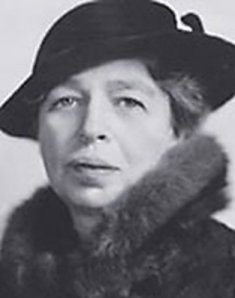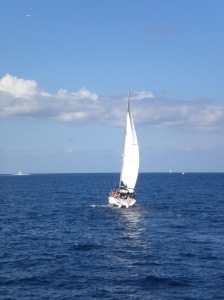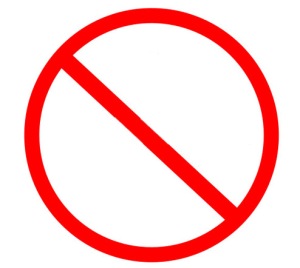Drive 1000 miles in Europe and you get through 12 countries. In the US that will take you from California all the way to — Oregon. Specifically, from Los Angeles to Portland.
My 1000-mile adventure began in the mind-bending snarl of LAX, an airport as labyrinth as the freeways in whose tentacles it nestles. Sarah and I had set out from Los Angeles three weeks earlier, armed with an atlas, a kettle, a tent with no poles, and a carton of super-hot wasabi peas. Four-thousand miles, several national parks, one whisky-soaked birthday bash, and a midnight marathon later she was on her way back to London.

All you really need
Everything up to the farewell had been meticulously planned, mostly by Sarah, whose talent for organisation I admire but don’t share. Now the brains of our operation was airborne my only thought was to find I405N and stick to it like rubber cement until I escaped the LA sprawl.
Driving Los Angeles freeways feels, appropriately, like a video game. You need total concentration and whip-like reflexes. One minute you’re bumper to bumper at 70 miles per hour; the next at a 15mph crawl. Cars swarm and dart like outraged insects with expensive exoskeletons. Me and Bobby McGee, our trusty Toyota hire car, could buzz with the best of them, though. I cranked the Lady Gaga tunes, rolled down the windows, grabbed the wheel with both hands and hit play.
It takes about forever for LA to peter out. There always seems to be just one more suburb. Finally the landscape muted as we slipped the clutches of la la land. I had 300-odd miles before my next decision: to fly through central California on I5 or hook a left at San Francisco and follow Highway 101 along the coast.
Gaga gave way to Bruce Springsteen. Apropos, given that central California has more in common with working-class Jersey than it does with LA or San Francisco. Those two cosmopolitan dots on the map mask the fact that most of the enormous state is empty space studded with sullen, forgotten little towns. The beautiful bits are ring-fenced as national parks or were plowed under to feed the nation.
The part I was driving through was demarcated with tubular metal fencing around cattle yards that were heralded, miles in advance, by a throat-closing stench. Imagine hundreds of warm bodies crammed together in pits of putrefying sewage and you have some idea. If I wasn’t already a vegetarian, that would have been my road to Damascus. The idea of putting anything in my mouth that came from that smell was revolting.

Three hundred miles in Europe can take you through a variety of languages, borders and landscapes. California offers no such break from the tedium. The grey slice of interstate drags you on, hypnotised. Approaching the San Francisco junction I pictured myself pootling up 101. I could stop over in San Francisco, eat sourdough bread, smell the sea, take another picture of the bridge, stay in a cosy motel then head homewards at a civilised pace the following day. But Bobby was running on tracks and we had far to go.
For the same reason I only start enjoying a 10-mile run at mile six I kept driving.
Bobby and I whisked past Sacramento, California’s forgettable capital. The next significant town was Redding, 150 miles away, roughly the halfway point of my route. It offers no speciality breads or romantic views. I knew I wouldn’t stop. I was in the grip of distance-related cognitive dissonance, a disease all driving fanatics suffer. On the one hand, I knew it would take me at least two hours to Redding, itself still two hours from the Oregon border. But it was only 150 miles. Just a couple of inches on a map.

Bobby McGee
Redding vanished, taking the stultifying dullness of central Cali with it. I was locked into a mission now: to make it to Portland in one grand dash. Could I make it across 1300 metre Siskiyou Summit before dark? As the sun dwindled I fell in behind a Honda four-by-four and formed one of those informal and, on its part, involuntary road alliances. I have fallen afoul of the California Highway Patrol before, and as Bobby and I climbed there were plenty of places for avaricious traffic cops to lurk. The Honda was cruising at about 80 and I tucked in right behind.
Our mechanical dance carried us into the mountains, taking turns to dip in and out of slower traffic, overtake, lunge forward and linger till we were once again moving in harmony. Its taillights led me up the pass and into the fast descent that followed. By then I was in Oregon and hey, Oregon is home. No stopping now.

Mountain sunset
Time and distance started to play accordion tricks, stretching and contracting. I was obsessively mile-counting now: 97 from Medford to Roseburg. The Boss had worn thin. As had the Lady. And everything from Pulp to Jay-Z. Every sing-along song had been sung. My fingers were glued to the wheel and my nerves were stretched like rubber bands. The friendly Honda turned off and was replaced by a looming redneck beast of a truck whose jacked-up suspension and massive wheels put its aftermarket halogens dead centre in my rearview mirror. Every time my eyes flickered up I got a nervous jolt: the retina-stabbing bluey-white looked like police lights.
My speed reflected varying levels of prudence, stubbornness and temptation. The roads were practically empty so I felt safe at illegal speeds. That made me easy prey, though, and after 5500 miles and counting I didn’t want to end my adventure with a massive traffic fine. On clear, straight stretches I risked fast runs, drafting on any available vehicle. When I5 took me past small towns I eased off; nobody wants to tangle with local boys in blue.
I considered stopping in Eugene, where I used to live with my brother. Friends there would put me up, no problem. But I wasn’t tired, just bored — and fixated. It’s about a hundred miles from Eugene to Portland and I know every detail of the road. Familiarity would make the miles fly. For most of the trip I’d made a conscious effort to not think about the destination because it was too far away. Now, as the lights of Eugene and Springfield flashed past, I let myself picture my sister and brother-in-law’s house. With any luck Saturday night socialising would still be in full flow. They weren’t expecting me, which makes for the best reunions.

Home. Sweet!
Willpower-fueled concentration carried me to the outskirts of the city where I promptly forgot which exit I needed. My brain was tottering towards collapse. Was it 72nd Avenue? Did I hang on till Barbur Boulevard? I can’t now remember which I took, only that it wasn’t the one I wanted. This is my navigational Achilles heel. Give me 6000 miles of open road and I’m dandy. Put me on an unfamiliar street in my neighbourhood and I’m screwed.
There was no point in calling for directions because I didn’t quite know where I was. Nor would well-meant advice have sunk in, at that point. Somehow Bobby and I found our way onto 72nd and nosed tentatively along guided by half-familiar landmarks. Then, bliss. I recognised the cut of a particular intersection. Straight down, right then through the traffic lights.
I drove the last mile slow, slipping silently along Tigard’s low-lit suburban streets, uphill and down. When I killed the engine it was a few minutes before midnight. One thousand miles in 15 hours of solitude, splendour and monumental boredom. “The scary thing”, I thought, trudging up the steps, “is that’s only a tiny little sliver of America. Where shall I go next?”














